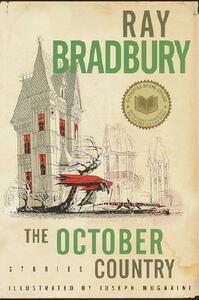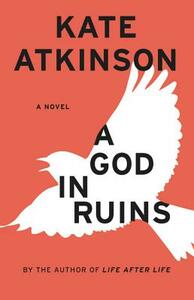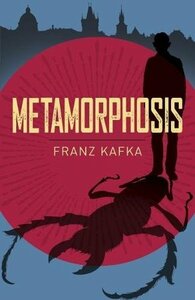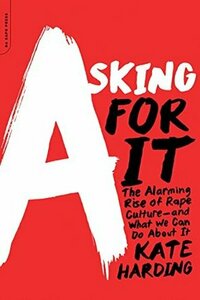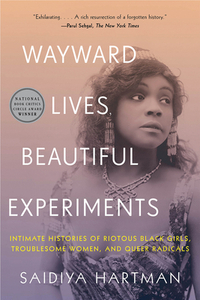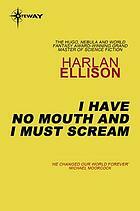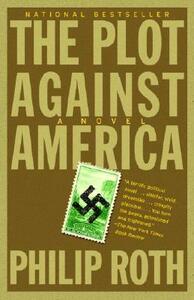Take a photo of a barcode or cover
kevin_shepherd's Reviews (563)
30-Second Evolution: The 50 most significant ideas and events, each explained in half a minute
Nick Battey, Mark Fellowes, Mark Fellowes
Fellowes & Battey have orchestrated a condensed overview of the key principles of evolution without dumbing-down the material. The result is both an intelligent introduction and a workable refresher of the core concepts of evolution science.
Genetics, taxonomy, mutations, drift, convergent evolution and industrial melanism are but a few of the 50 important concepts and ideas discussed here. The editors have also included brief bios of pioneering scientists who have contributed and advanced the study of evolution, people like Charles Darwin, Lynn Margulis and Richard Leakey.
30-Second Evolution isn't comprehensive or exhaustive, but it is ideal for anyone wanting an academic intro or review.
Genetics, taxonomy, mutations, drift, convergent evolution and industrial melanism are but a few of the 50 important concepts and ideas discussed here. The editors have also included brief bios of pioneering scientists who have contributed and advanced the study of evolution, people like Charles Darwin, Lynn Margulis and Richard Leakey.
30-Second Evolution isn't comprehensive or exhaustive, but it is ideal for anyone wanting an academic intro or review.
One of the things I love most about Ray Bradbury is that he tends to end his stories about one or two sentences short of ending his stories. He leaves his readers to whirl off into the void (science fiction) or to careen down into the abyss (horror), drawing conclusions from their own active imaginations. And make no mistake about it, The October Country isn't science fiction, it is oft-creepy, sometimes tongue-in-cheek, horror. If you're a fan of the genre and enjoy short stories, this may be your book.
For an Anglophile like myself, Kate Atkinson is more addictive than crack. She's a wordsmith of the first order. I've yet to read Life After Life, the companion predecessor to A God In Ruins, but I had no trouble immersing myself in Atkinson's universe.
I was somewhat taken back by Atkinson's depiction of love and attachment. Many of her characters are pragmatic about coupling and seem hardily stoic when it comes to infidelity, divorce and/or death. Maybe that's the British way. The stiff upper lip. Or maybe that's Atkinson's personality pushing through. Either way, I found it added to the wonderful ambiance of the novel. No forced sentimentality here.
Teddy's non-linear progression through the stages of his life gave me pause. I could see a bit of myself in his character, and it made me a little sad. Time, like a good novel, seems to pass far too quickly.
I'm looking forward to more of Atkinson's pennings; she has officially captured my interest.
I was somewhat taken back by Atkinson's depiction of love and attachment. Many of her characters are pragmatic about coupling and seem hardily stoic when it comes to infidelity, divorce and/or death. Maybe that's the British way. The stiff upper lip. Or maybe that's Atkinson's personality pushing through. Either way, I found it added to the wonderful ambiance of the novel. No forced sentimentality here.
Teddy's non-linear progression through the stages of his life gave me pause. I could see a bit of myself in his character, and it made me a little sad. Time, like a good novel, seems to pass far too quickly.
I'm looking forward to more of Atkinson's pennings; she has officially captured my interest.
So, this business man wakes up one morning to discover that he has somehow mysteriously morphed into a disgusting, putrid, orangey cockroach.
No, this isn't Donald Trump's autobiography...
Kafka's Metamorphosis played as much to my subconscious anxieties as it did to my conscious ones, like those nightmares most of us have about our teeth falling out, or our home falling apart. I came away feeling like I had just watched a David Lynch film (*see: Eraserhead).
I enjoyed this and I'm not 100% sure why. Maybe I liked it because it can be exhilarating to face one's fears, like skydiving, or bungee jumping, or marriage?
No, this isn't Donald Trump's autobiography...
Kafka's Metamorphosis played as much to my subconscious anxieties as it did to my conscious ones, like those nightmares most of us have about our teeth falling out, or our home falling apart. I came away feeling like I had just watched a David Lynch film (*see: Eraserhead).
I enjoyed this and I'm not 100% sure why. Maybe I liked it because it can be exhilarating to face one's fears, like skydiving, or bungee jumping, or marriage?
I wish I lived in a country where my politicians didn’t say things like…
“Rape is kinda like the weather. If it’s inevitable, relax and enjoy it.” ~Clayton Williams, Texas
“If it’s a legitimate rape, the female body has ways to shut that thing down.” ~Todd Akin, Missouri
“Rape victims should make the best of a bad situation.” ~Rick Santorum, Pennsylvania
“Even when life begins in that horrible situation of rape, it is something that God intended to happen.” ~Richard Mourdock, Indiana
…but I don’t.
I wish I could turn on the television and not hear things like…
"I know it wasn't rape-rape. It was something else but I don't believe it was rape-rape.” ~Whoopie Goldberg on Roman Polanski vaginally and anally penetrating a 13 year old girl
or…
“The situation here for this kid looks to me to be a lot more fun than what he had under his old parents. He didn't have to go to school. He could run around and do whatever he wanted.” ~Bill O’Reilly on the kidnapping and repeated raping of a 15 year old boy
…but I can’t.
I wish people would believe Dylan Farrow when she writes…
“…when I was seven years old, Woody Allen took me by the hand and led me into a dim, closet-like attic on the second floor of our house. He told me to lay on my stomach and play with my brother’s electric train set. Then he sexually assaulted me. He talked to me while he did it, whispering that I was a good girl, that this was our secret, promising that we’d go to Paris and I’d be a star in his movies.”
…but they don’t.
I wish the term “Rape Culture” was a ludicrous exaggeration…
…but it isn’t.
Kate Harding writes with both fervor and exasperation. Published in 2015, Asking For It predates Harvey Weinstein and #MeToo and the 2016 election of our “grab ‘em by the p*ssy” POTUS.
I wish the people that most needed to read this had actually read this, but they didn’t, and they haven’t, and they won’t.
“Rape is kinda like the weather. If it’s inevitable, relax and enjoy it.” ~Clayton Williams, Texas
“If it’s a legitimate rape, the female body has ways to shut that thing down.” ~Todd Akin, Missouri
“Rape victims should make the best of a bad situation.” ~Rick Santorum, Pennsylvania
“Even when life begins in that horrible situation of rape, it is something that God intended to happen.” ~Richard Mourdock, Indiana
…but I don’t.
I wish I could turn on the television and not hear things like…
"I know it wasn't rape-rape. It was something else but I don't believe it was rape-rape.” ~Whoopie Goldberg on Roman Polanski vaginally and anally penetrating a 13 year old girl
or…
“The situation here for this kid looks to me to be a lot more fun than what he had under his old parents. He didn't have to go to school. He could run around and do whatever he wanted.” ~Bill O’Reilly on the kidnapping and repeated raping of a 15 year old boy
…but I can’t.
I wish people would believe Dylan Farrow when she writes…
“…when I was seven years old, Woody Allen took me by the hand and led me into a dim, closet-like attic on the second floor of our house. He told me to lay on my stomach and play with my brother’s electric train set. Then he sexually assaulted me. He talked to me while he did it, whispering that I was a good girl, that this was our secret, promising that we’d go to Paris and I’d be a star in his movies.”
…but they don’t.
I wish the term “Rape Culture” was a ludicrous exaggeration…
…but it isn’t.
Kate Harding writes with both fervor and exasperation. Published in 2015, Asking For It predates Harvey Weinstein and #MeToo and the 2016 election of our “grab ‘em by the p*ssy” POTUS.
I wish the people that most needed to read this had actually read this, but they didn’t, and they haven’t, and they won’t.
"Darwin was paying his possible future wife a fond and mischievous tribute when he wrote that one of her possible advantages was that she would be 'better than a dog, anyhow'." (pg 65)
I don't know about you, but that made me smile.
From transcript excerpts and essays and letters and journals, Emma Townshend has amassed a marvelous collection of evidence, all corroborating Charles Darwin's love of dogs. This is a testament to his character, his humor, and his humanity. Dogs were an important part of his world and their actions and antics helped shape his view of nature.
"Dogs show what may be fairly called a sense of humor, as distinct from mere play; if a bit of stick or other such object be thrown to one, he will often carry it away for a short distance; and then squatting down with it on the ground close before him, will wait until his master comes close to take it away. The dog will then seize it and rush away in triumph, repeating the same maneuver, and evidently enjoying the practical joke." ~CD (pg 102)
Anthropomorphism you say? Simple attribution of human characteristics to an animal? Townshend, in Darwin's defense, points out that there have always been some scientists who have little doubt that animals experience love, jealousy, anger, sadness, and even humor, though not exactly in the same way. I would propose that anyone who has ever shared a household with a dog or a cat would attest to the validity of this hypothesis.
Darwin's Dogs aptly illustrates how Charles Darwin's connection with canines helped cement his ideas of interrelatedness and connectivity between the "us" and the "them". This is a portrait of Darwin that says as much about his big heart as it does about his big brain.
I don't know about you, but that made me smile.
From transcript excerpts and essays and letters and journals, Emma Townshend has amassed a marvelous collection of evidence, all corroborating Charles Darwin's love of dogs. This is a testament to his character, his humor, and his humanity. Dogs were an important part of his world and their actions and antics helped shape his view of nature.
"Dogs show what may be fairly called a sense of humor, as distinct from mere play; if a bit of stick or other such object be thrown to one, he will often carry it away for a short distance; and then squatting down with it on the ground close before him, will wait until his master comes close to take it away. The dog will then seize it and rush away in triumph, repeating the same maneuver, and evidently enjoying the practical joke." ~CD (pg 102)
Anthropomorphism you say? Simple attribution of human characteristics to an animal? Townshend, in Darwin's defense, points out that there have always been some scientists who have little doubt that animals experience love, jealousy, anger, sadness, and even humor, though not exactly in the same way. I would propose that anyone who has ever shared a household with a dog or a cat would attest to the validity of this hypothesis.
Darwin's Dogs aptly illustrates how Charles Darwin's connection with canines helped cement his ideas of interrelatedness and connectivity between the "us" and the "them". This is a portrait of Darwin that says as much about his big heart as it does about his big brain.
The Great Northern Migration
“Three decades after Emancipation and black folks had nothing. No matter. The flood of migrants did not cease, and the scramble to live did not squelch dreams of the north, the city, and the good life. All they heard back home, in dusty southern towns, were the lies and the assurances—things were easier up there and the white folks ain’t as evil. It took only a week to discover that neither was true.”
Wayward Lives, Beautiful Experiments is American history via Black biography. It’s an examination of ordinary women surviving extraordinary bigotry, brutality and hardship. From the “negro tenements” of Philadelphia to the workhouses and reformatories of New York, black women with no financial resources either improvised or unraveled. There was no third option.
“A whole world is jammed into one short block crowded with black folks shut out from almost every opportunity the city affords, but still intoxicated with freedom.”
Through her research, Hartman commits to posterity a few life histories that some people today (see: The 1776 Commission) would rather we all forget. Rest assured, there are no mundane stories here. Although most of these women—housemaids and chorus girls, cooks and prison inmates—you have never heard of, some of these women, thanks to Hartman, you will never forget.
“Three decades after Emancipation and black folks had nothing. No matter. The flood of migrants did not cease, and the scramble to live did not squelch dreams of the north, the city, and the good life. All they heard back home, in dusty southern towns, were the lies and the assurances—things were easier up there and the white folks ain’t as evil. It took only a week to discover that neither was true.”
Wayward Lives, Beautiful Experiments is American history via Black biography. It’s an examination of ordinary women surviving extraordinary bigotry, brutality and hardship. From the “negro tenements” of Philadelphia to the workhouses and reformatories of New York, black women with no financial resources either improvised or unraveled. There was no third option.
“A whole world is jammed into one short block crowded with black folks shut out from almost every opportunity the city affords, but still intoxicated with freedom.”
Through her research, Hartman commits to posterity a few life histories that some people today (see: The 1776 Commission) would rather we all forget. Rest assured, there are no mundane stories here. Although most of these women—housemaids and chorus girls, cooks and prison inmates—you have never heard of, some of these women, thanks to Hartman, you will never forget.
Do any of us die having said everything we wanted to say? Or having said everything that needed to be said? Samuel Clemens, aka Mark Twain, certainly did not. When he died in 1910 he left behind a substantial cache of notebooks, letters, and unfinished manuscripts, much of which turned out to be a treasure trove of brilliant satirical and existential prose. Herein lies the problem. How do you publish what amounts to be three pages of notes here, eighteen pages of an incomplete essay there, twenty six pages of an unfinished story over there, in a coherent, logical, related format? You can't. What you do is what Bernard DeVoto has done; you combine a selection of the best bits, annotate it with explanatory footnotes, and send it out into the world.
"If science exterminates a disease which has been working for God, it is God that gets the credit, and all the pulpits break into grateful advertising-raptures and call attention to how good he is! Yes, HE has done it. Perhaps he has waited a thousand years before doing it. That is nothing; the pulpit says he was thinking about it the whole time. When exasperated men rise up and sweep away an age-long tyranny and set a nation free, the first thing the delighted pulpit does is to advertise it as God's work, and invite people to get down on their knees and pour out their thanks to him for it."
I'm more impressed with Twain than ever before. His satire was as sharp as any written today, and it's no big surprise that his publishers fought hard to keep so much of this out of the public eye. It wasn't until decades after his passing that Letters from the Earth saw the light of day.
"If [God] had had a motto, it would have read, 'Let no innocent person escape.' You remember what he did in the time of the flood. There were multitudes and multitudes of tiny little children, and he knew they had never done him any harm; but their relations had, and that was enough for him: he saw the wild terror in their eyes, he saw that agony of appeal in the mothers' faces which would have touched any heart but his, but he was after the guiltless particularly, and he drowned those poor little chaps."
Not all of Letters is so biblically condescending. If blasphemy isn't your thing, there's an irreverent slight on Britain's Prince Albert. Or how about a short story on the fallacious faculties of felines? Whatever your particular taste, there is surely something here that you can engage with, that will broaden your perspective and, just maybe, challenge your preconceptions about one of America's most beloved writers.
"If science exterminates a disease which has been working for God, it is God that gets the credit, and all the pulpits break into grateful advertising-raptures and call attention to how good he is! Yes, HE has done it. Perhaps he has waited a thousand years before doing it. That is nothing; the pulpit says he was thinking about it the whole time. When exasperated men rise up and sweep away an age-long tyranny and set a nation free, the first thing the delighted pulpit does is to advertise it as God's work, and invite people to get down on their knees and pour out their thanks to him for it."
I'm more impressed with Twain than ever before. His satire was as sharp as any written today, and it's no big surprise that his publishers fought hard to keep so much of this out of the public eye. It wasn't until decades after his passing that Letters from the Earth saw the light of day.
"If [God] had had a motto, it would have read, 'Let no innocent person escape.' You remember what he did in the time of the flood. There were multitudes and multitudes of tiny little children, and he knew they had never done him any harm; but their relations had, and that was enough for him: he saw the wild terror in their eyes, he saw that agony of appeal in the mothers' faces which would have touched any heart but his, but he was after the guiltless particularly, and he drowned those poor little chaps."
Not all of Letters is so biblically condescending. If blasphemy isn't your thing, there's an irreverent slight on Britain's Prince Albert. Or how about a short story on the fallacious faculties of felines? Whatever your particular taste, there is surely something here that you can engage with, that will broaden your perspective and, just maybe, challenge your preconceptions about one of America's most beloved writers.
“It’s long past time for Harlan Ellison to be awarded the title: 20th Century Lewis Carroll.” ~The Los Angeles Times
Although Approaching Oblivion will always hold a sentimental and nostalgic place in my heart, this Ellison offering is even better. In fact, if I had a friend who had never experienced Harlan Ellison on any level I would gift them a copy of I Have No Mouth & I Must Scream. What better place to start a love/hate relationship with H.E. than his veritable Vinn diagram of exquisite horror, outstanding science fiction, and abhorrent 1960s sexism.
Although Approaching Oblivion will always hold a sentimental and nostalgic place in my heart, this Ellison offering is even better. In fact, if I had a friend who had never experienced Harlan Ellison on any level I would gift them a copy of I Have No Mouth & I Must Scream. What better place to start a love/hate relationship with H.E. than his veritable Vinn diagram of exquisite horror, outstanding science fiction, and abhorrent 1960s sexism.
I need more Philip Roth in my life. If Toni Morrison and James Baldwin are the quintessential purveyors of primo black American lit, then Roth is their Semitic doppelgänger.
“I pledged allegiance to the flag of our homeland every morning at school. I sang of its marvels with my classmates at assembly programs. I eagerly observed its national holidays, and without giving a second thought to my affinity for the Fourth of July fireworks or the Thanksgiving turkey or the Decoration Day double-header. Our homeland was America. Then the Republicans nominated Lindbergh and everything changed.”
fas·cism | \ ˈfa-ˌshi-zəm : a political philosophy, movement, or regime that stands for a centralized autocratic government headed by a dictatorial leader, severe economic and social regimentation, and forcible suppression of opposition
What was entertaining historical fiction in 2004 now reads like astute post-2016 prophecy. I’m not sure I could have read this a year ago because it falls into that ‘disturbingly familiar dystopia’ category (see also: The Handmaid’s Tale) that stokes my anxiety to unbearable levels of gastro-intestinal distress.
“…he could have announced that the First Lady would be inviting Adolf Hitler and his girlfriend to spend the Fourth of July weekend as vacation guests in the Lincoln bedroom of the White House and still have been cheered by his countrymen as democracy’s savior.” ~Philip Roth, The Plot Against America, 2004
“I could stand in the middle of 5th Avenue and shoot somebody and I wouldn’t lose voters.” ~Donald Trump, 2016
“I pledged allegiance to the flag of our homeland every morning at school. I sang of its marvels with my classmates at assembly programs. I eagerly observed its national holidays, and without giving a second thought to my affinity for the Fourth of July fireworks or the Thanksgiving turkey or the Decoration Day double-header. Our homeland was America. Then the Republicans nominated Lindbergh and everything changed.”
fas·cism | \ ˈfa-ˌshi-zəm : a political philosophy, movement, or regime that stands for a centralized autocratic government headed by a dictatorial leader, severe economic and social regimentation, and forcible suppression of opposition
What was entertaining historical fiction in 2004 now reads like astute post-2016 prophecy. I’m not sure I could have read this a year ago because it falls into that ‘disturbingly familiar dystopia’ category (see also: The Handmaid’s Tale) that stokes my anxiety to unbearable levels of gastro-intestinal distress.
“…he could have announced that the First Lady would be inviting Adolf Hitler and his girlfriend to spend the Fourth of July weekend as vacation guests in the Lincoln bedroom of the White House and still have been cheered by his countrymen as democracy’s savior.” ~Philip Roth, The Plot Against America, 2004
“I could stand in the middle of 5th Avenue and shoot somebody and I wouldn’t lose voters.” ~Donald Trump, 2016

